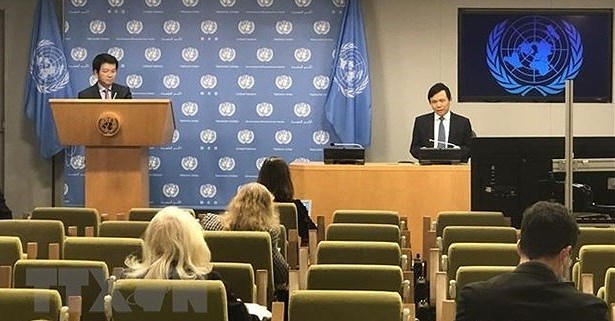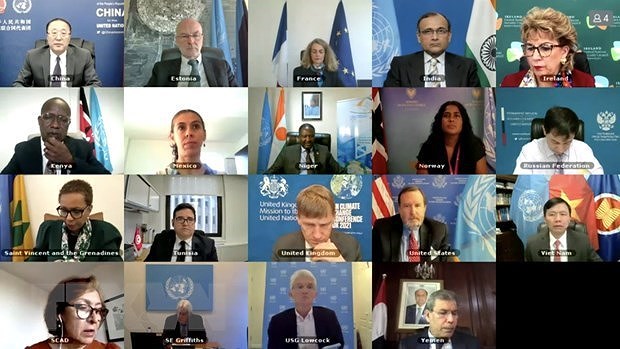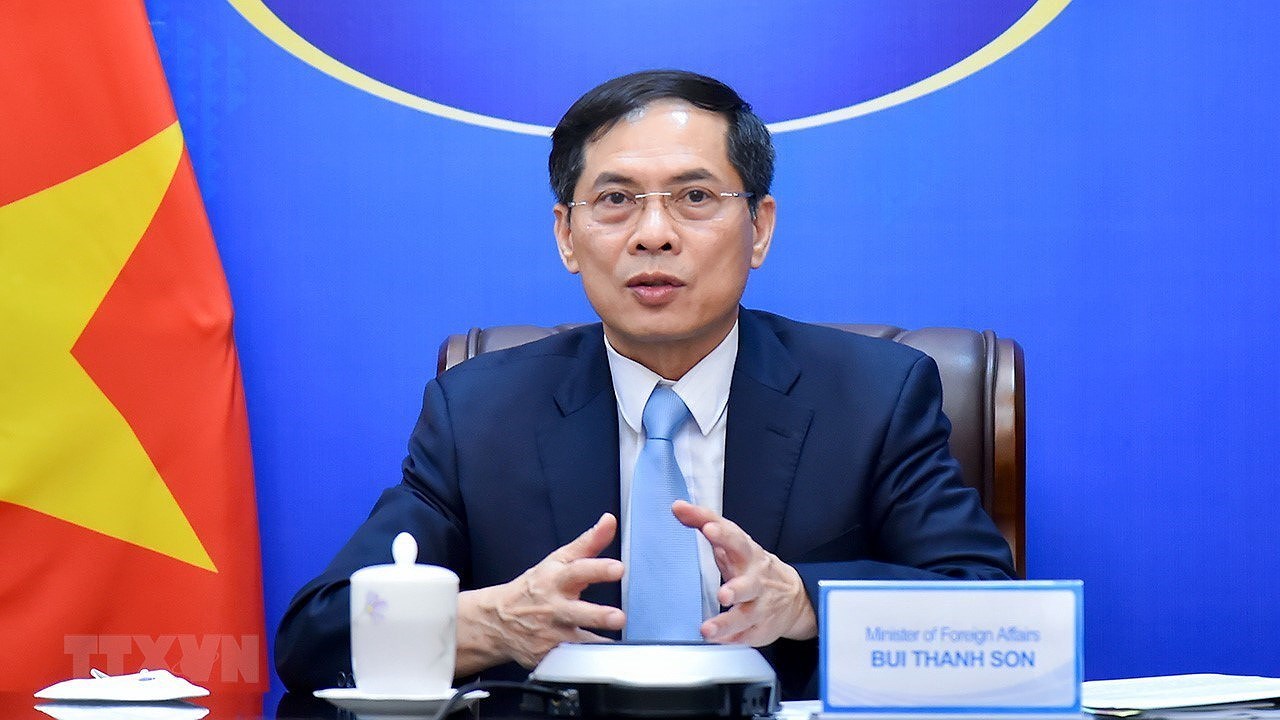Vietnam's successes and imprints at the United Nations Security Council (UNSC) as its non-permanent member in the 2020-2021 term have contributed to affirming that the Party and State's policy of upholding multilateral diplomacy is absolutely sound, thus strengthening the foundation for the country to continue pushing forward the implementation of this policy in the new period, Foreign Minister Bui Thanh Son has said.
 The press conference held on April 1, 2021 to inform about the month Vietnam served as President of the UN Security Council (Photo: VNA)
The press conference held on April 1, 2021 to inform about the month Vietnam served as President of the UN Security Council (Photo: VNA)- Vietnam's successes and imprints at the United
Nations Security Council (UNSC) as its non-permanent member in the 2020-2021
term have contributed to affirming that the Party and State's policy of
upholding multilateral diplomacy is absolutely sound, thus strengthening the
foundation for the country to continue pushing forward the implementation of this
policy in the new period, Foreign Minister Bui Thanh Son has said.
According to Son, through the success of the tenure as a
non-permanent member of the UNSC and other important foreign affairs
achievements, the Vietnamese people increasingly trust in the sound foreign
policy of the Party and State, and the international community expects Vietnam to continue making more important contributions to
solving global and regional problems.
After three years of implementing the 12th-tenure
Party Central Committee Secretariat’s Directive 25 on promoting and enhancing
multilateral diplomacy by 2030 – the Party’s first document on this issue, the work
has been deployed strongly and synchronously and seen many important
milestones. Notably, Vietnam has fulfilled many important international
responsibilities such as its roles as a non-permanent member of the UNSC in the
2020-2021 tenure, the ASEAN Chair in 2020, as well as the successful organisation
of many major international conferences such as the World Economic Forum -
ASEAN Summit in 2018 and the US-Democratic People’s Republic of Korea Summit in
2019.
 Representatives of Vietnam and other UNSC members attend a discussion on the Yemen situation in May 2021 (Photo: VNA)
Representatives of Vietnam and other UNSC members attend a discussion on the Yemen situation in May 2021 (Photo: VNA)
In addition, Vietnam has been elected with a high number of
votes to various prestigious organisations and agencies of the UN such as the
International Law Commission, the Board of Governors of the International
Atomic Energy Agency, the UNESCO Executive Board, the Postal Operations Council
of the Universal Postal Union.
The outstanding results have contributed to the overall
achievements of Vietnam's foreign policy after 35 years of Doi Moi (Renewal),
contributing to raising the international position and prestige that Vietnam
has never had before, thus helping inspire national pride, and expand the
international community's support for the country's renewal cause.
The diplomat affirmed that, along with other important foreign affairs
activities, assuming the role of a non-permanent member of the UNSC has
contributed to consolidating a stable and favourable external situation for the
nation building and safeguarding cause, expanding and deepening relations with
many important partners, especially UNSC member states. Vietnam has also asserted its
position and prestige as a faithful friend, a reliable partner, and an active and
responsible member of the international community, and has received the consensus
and support of all members of the UNSC and international friends.
 Foreign Minister Bui Thanh Son (Photo: VNA)
Foreign Minister Bui Thanh Son (Photo: VNA)
Through the two-year term, Vietnam can learn from numerous
valuable lessons. The first is the sound settlement of the relationship between independence,
self-reliance and international solidarity and cooperation; between national
interests and international obligations and responsibilities on the basis of fundamental principles of the UN Charter and international law. The second is the
promotion of the nation's tradition of diplomacy
and President Ho Chi Minh's diplomatic ideology. The third lesson is skillful
combination between position and power, between multilateral and bilateral
diplomacy, and between political, economic and cultural diplomacy. And the
fourth is the importance of training competent diplomats, FM Son added./.